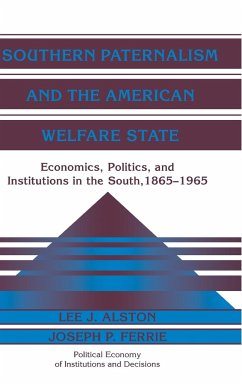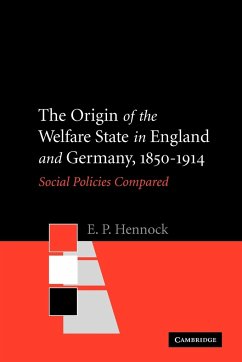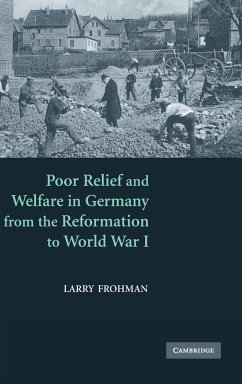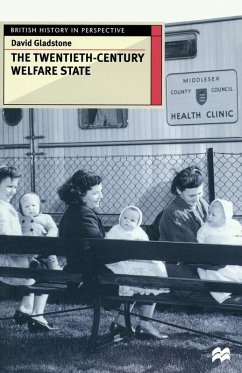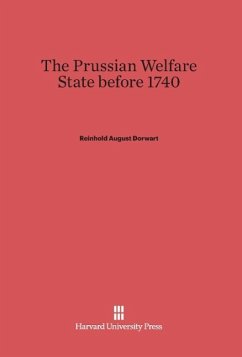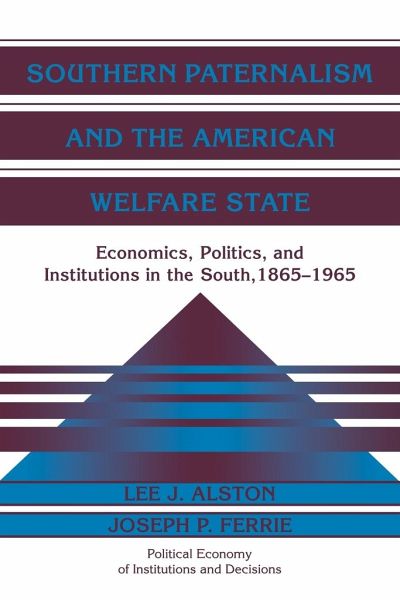
Southern Paternalism and the American Welfare State
Economics, Politics, and Institutions in the South, 1865 1965
Versandkostenfrei!
Versandfertig in 1-2 Wochen
41,99 €
inkl. MwSt.

PAYBACK Punkte
21 °P sammeln!
Using institutional economics, Professors Alston and Ferrie show how paternalism in Southern agriculture helped shape the growth of the American welfare state in the hundred years following the Civil War. It was an integral part of agricultural contracts prior to mechanization. Paternalism involved the exchange of 'good and faithful' labour services for a variety of in-kind services, most notably protection from physical violence. The Southern landed elite valued paternalism because it reduced monitoring costs and turnover. Workers valued paternalism because of the lack of civil rights. In ord...
Using institutional economics, Professors Alston and Ferrie show how paternalism in Southern agriculture helped shape the growth of the American welfare state in the hundred years following the Civil War. It was an integral part of agricultural contracts prior to mechanization. Paternalism involved the exchange of 'good and faithful' labour services for a variety of in-kind services, most notably protection from physical violence. The Southern landed elite valued paternalism because it reduced monitoring costs and turnover. Workers valued paternalism because of the lack of civil rights. In order to maintain the value of paternalism to their workers, the agricultural interests needed to prevent meddling from the federal government, which they accomplished through their disproportionate political power. Only the advent of mechanization and complementary technology in the late 1950s and early 1960s finally reduced the desire of Southern agricultural interests to fight the expansion of federal welfare programmes.





